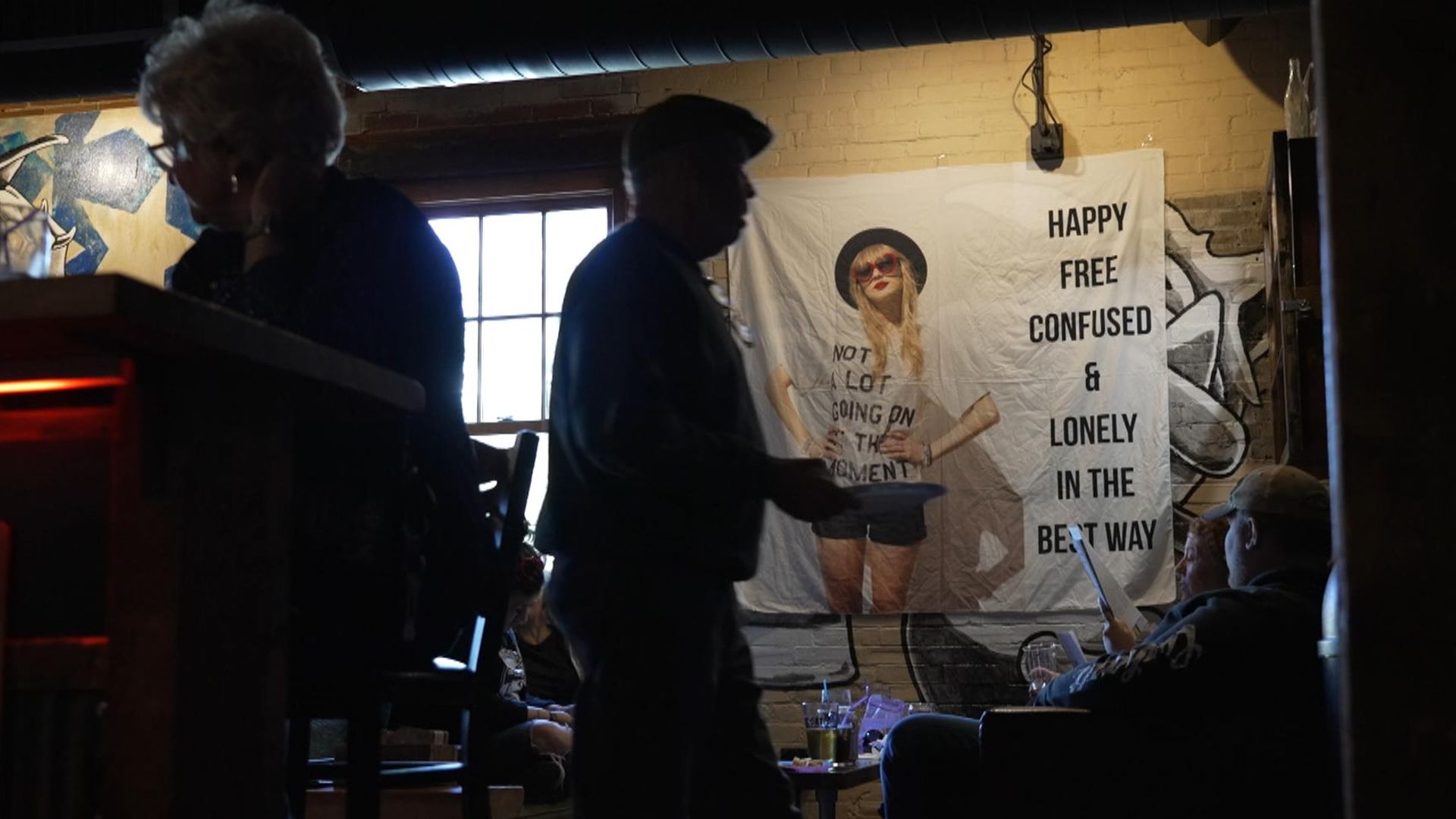
AUGUSTA, Maine — The aftermath of the Lewiston mass shooting dominated the Maine Legislature’s return to the State House on Wednesday, with hundreds rallying for gun control and the chambers holding ceremonies to remember the victims.
It was an example of the pressure that lawmakers are under to pass the kinds of gun restrictions that have historically been turned back in Maine on a bipartisan basis. But the Oct. 25 shooting at a bowling alley and bar that killed 18 and injured another 13 quickly changed the conversation about guns in a state with low rates of firearm violence.
The second floor of the State House was packed with demonstrators before the Senate and House of Representatives convened Wednesday morning. Gun control supporters held signs with messages such as, “Ban Assault Weapons Now” and “Gun Violence is Preventable.” Gun rights supporters were sprinkled among the crowd, with one holding a “Guns Save Lives” sign.
“We can save thousands of lives if we just try to do the right thing here,” Arthur Barnard, whose son, Arthur Strout, was killed while playing pool at Schemengees Bar and Grille, told demonstrators with his hands visibly shaking.
The Maine Senate opened business with a prayer from the Rev. Sarah Gillespie, who works for Androscoggin Home Healthcare and Hospice in Lewiston, and the national anthem from a group of singers from the city’s high school. Sen. Peggy Rotundo, D-Lewiston, read the names of those who died.
Guns are expected to be one of the hottest topics in the Maine Legislature this year. The October shooting came months after a coalition of Republicans and more centrist Democrats voted down gun control measures including background check expansions and a 72-hour waiting period before firearm purchases.
The situation looks different now. After the shooting, Gov. Janet Mills made a vague call for consensus action on guns. Since then, her administration has convened talks with those on both sides of the debate, including House Speaker Rachel Talbot Ross, D-Portland, a progressive who has proposed restrictions, and the gun-rights Sportsman’s Alliance of Maine.
Leading Democrats have aired few specific ideas to date, but gun control groups have called for a ban on so-called assault weapons and a “red flag” law that would build on a similar Maine law to make it easier for police to seize guns from people who are deemed dangerous. Republicans have said new limits are unnecessary and called for mental health reforms.
There were ample warning signs about the shooter, 40-year-old Army reservist Robert Card. A fellow reservist warned police earlier this year he was gathering firearms while becoming paranoid and claiming the businesses he ended up targeting were “broadcasting” he was a pedophile. Card was found dead two days after the shooting of a self-inflicted gunshot wound.
Experts have said police should have invoked Maine’s “yellow flag” law, which allows police to seek a court order to seize a dangerous person’s weapons, when a sheriff’s deputy was called to check on Card in September but left his home without talking to him. A review for the Sagadahoc County Sheriff’s office said the deputy acted appropriately.
The lead-up to the shooting and the manhunt afterward are the subject of several reviews, including one by a panel picked by Mills and Attorney General Aaron Frey, who are both Democrats. The Army is doing an internal review, and the military branch’s inspector general will do an independent investigation.
Numerous domestic violence survivors attended Wednesday’s rally, including Jeannine Oren with Maine-based Finding Our Voices. Oren, of Casco, said she is a gun owner but echoed a point Barnard made in lamenting “too many loopholes” that allow abusers to acquire guns.
“I just got a vibe in the room today that maybe we can come together on some of those legislative issues,” Oren added.
But that conversation could be a difficult one. Steve McGinty, who said he lives in western Maine and attended the rally as a gun-rights advocate, said red flag laws “violate people’s due process.”
“I don’t think gun control is reasonable,” he said.











